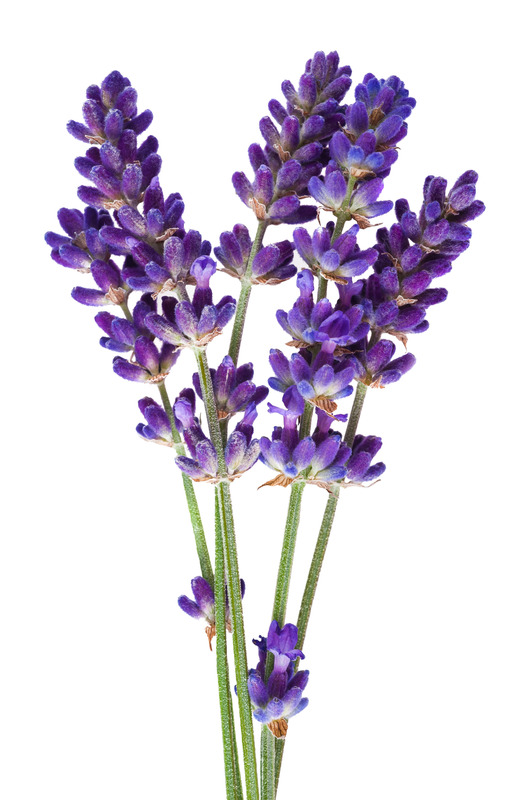Essential oils are concentrated extracts derived from plants that capture the plant’s scent and flavor. They are made through distillation or mechanical methods like cold pressing. Essential oils have been used for centuries in aromatherapy, medicine, beauty treatments, cleaning products, and as natural insect repellents.
When it comes to repelling insects like mosquitoes, ticks, and flies, some essential oils are more effective than others. Certain oils contain chemical compounds that deter insects in different ways, from masking human scents to interfering with insect scent receptors. Using essential oils as a natural alternative to harsh chemical repellents has become popular for avoiding bites and skin irritation.
Most Effective Essential Oils for Repelling Insects
Citronella Essential Oil
Citronella essential oil is one of the most popular and effective oils for repelling mosquitoes and other insects. This oil is distilled from Cymbopogon grasses and has a strong, fresh, lemony aroma.

Citronella contains active compounds like geraniol and citronellol that act as insect repellents. Research shows that citronella oil can effectively repel different species of mosquitoes for 1-2 hours after application. The exact length of protection can depend on factors like climate, exposure, and concentration of the oil.
To use citronella as an insect repellent, dilute it with a carrier oil like coconut or jojoba oil. A 5-10% dilution is generally recommended for repelling mosquitoes. Apply the diluted oil directly to exposed skin and reapply every 1-2 hours as needed. Some popular ways to apply it include spritzing it on as a body spray, rubbing it into the skin, or using it in lotions.
Citronella oil is considered very safe for topical use, even for pregnant women and children when used appropriately. As with all essential oils, it should be kept away from eyes and mucous membranes. Some people may experience skin sensitivities, so test a small amount on the arm before wider application.
Overall, citronella is an accessible, affordable, and effective natural mosquito repellent. With its fresh, clean scent and safety profile, it’s a great option to help prevent mosquito bites.
Lemongrass Essential Oil

Lemongrass essential oil is an effective natural tick repellent. It comes from the perennial lemongrass plant and has a strong lemon scent.
Lemongrass oil contains citral and geranial, compounds that are very effective at repelling ticks. Research shows that lemongrass essential oil can repel ticks for up to 2 hours when applied to clothes and skin.
To use lemongrass oil as a tick repellent, mix 5-10 drops of oil per ounce of carrier oil like coconut or jojoba oil. Apply the diluted oil directly to exposed skin and clothing. Focus on places where ticks are likely to bite like ankles, wrists, neck, and hairline. Reapply every 2 hours for continued protection.
Lemongrass oil is generally safe to use topically when diluted. Conduct a patch test on a small area of skin first to check for allergic reactions. Avoid contact with eyes and mucous membranes. Do not ingest lemongrass oil.
Lemongrass essential oil provides an all-natural and effective tick repellent. With regular reapplication to the skin and clothes, lemongrass oil can help prevent tick bites and Lyme disease during outdoor activities.
Peppermint Essential Oil
Peppermint essential oil is one of the most versatile essential oils and is highly effective as an insect repellent. It contains menthol, which gives it a strong, cooling, minty aroma that insects find unappealing.

Details on peppermint oil:
- Made from the peppermint plant, a hybrid of watermint and spearmint
- Has a concentrated, penetrating scent from high menthol content
- Acts as a repellent through its strong aroma
- Also has insecticidal, antimicrobial, and analgesic properties
Repelling spiders/ants:
Peppermint oil is very effective against spiders, ants, and other crawling insects because of its strong minty scent. Spiders dislike the potent aroma, while peppermint oil disrupts ants’ scent trail system so they can’t follow pheromones back to the nest.
Application:
There are a few ways to use peppermint oil as an insect repellent:
- Dilute with water or carrier oil and spray around baseboards, windows, doorways where spiders/ants may enter
- Place cotton balls soaked in diluted peppermint oil in problem areas
- Add several drops to a diffuser or vaporizer to scent the air
- Mix with water in a spray bottle for an all-purpose repellent
Safety:
Peppermint oil is generally safe to use topically when diluted properly. As with any essential oil, do a patch test first and avoid contact with eyes and sensitive areas. Keep out of reach of children and pets.
Tea Tree Oil
Tea tree oil is one of the most versatile essential oils for repelling insects. It contains powerful antimicrobial and insecticidal compounds like terpinen-4-ol that make it highly effective.

Some key benefits of using tea tree oil as an insect repellent include:
- Strong activity against fleas, lice, mosquitoes, flies and other insects. Research shows tea tree oil can kill and repel these pests.
- Natural and safe to use topically. Dilute with a carrier oil before applying to skin. Avoid contact with eyes and mucous membranes.
- Multi-purpose oil with uses beyond insect repelling. Tea tree oil also has antifungal, antibacterial and anti-inflammatory properties so it can help treat skin and nail infections.
- Convenient to use. Add a few drops to water in a spray bottle for an easy DIY repellent spray. Can also diffuse or apply topically when going outdoors.
- Long-lasting protection. Tea tree oil’s lingering aroma and efficacy keeps insects away for hours after application. Reapply every few hours as needed.
With its medicinal properties and ability to ward off insects, tea tree oil is a must-have essential oil for every home. Just be sure to dilute it properly before use and test for skin sensitivity.
Lavender Essential Oil
Lavender essential oil is one of the most popular and versatile oils. It has a fresh, floral, herbaceous scent that is calming and relaxing. Lavender oil is extracted from the flowers of the lavender plant through steam distillation.

Lavender oil is an effective repellent against moths, mosquitoes, and other flying insects. The strong scent of lavender oil overwhelms the insect’s senses so they are not attracted to areas where lavender oil has been applied. Lavender oil is especially useful for repelling moths and protecting clothes in storage from moth damage.
To use lavender oil as an insect repellent, mix a few drops with water in a spray bottle and mist around areas you want to protect. Spray on clothing, linens, curtains, carpets, and anywhere else moths may be attracted. Reapply every few days. You can also add lavender oil to sachets or cotton balls and place them in closets, drawers, and storage containers.
Lavender oil is very safe for topical use when diluted properly. Always mix with a carrier oil or water before applying to skin. Start with a low concentration like 1-2% lavender oil and increase if needed. Test on a small patch of skin first to check for any irritation or allergic reaction. Lavender oil may cause skin sensitivity in some individuals. Avoid contact with eyes and mucous membranes.
Eucalyptus Essential Oil
Eucalyptus oil is an essential oil derived from the oval-shaped leaves of eucalyptus trees, which are native to Australia. This fresh, invigorating oil has a camphoraceous aroma and can be an effective natural insect repellent.

When it comes to repelling cockroaches, eucalyptus oil can be a powerful tool. Studies have shown that eucalyptus oil exhibits insecticidal and repellent properties against German cockroaches in particular. The main active ingredient responsible is 1,8-cineole, also known as eucalyptol. This compound affects the nervous system of roaches, leading them to avoid areas treated with eucalyptus oil.
To use eucalyptus oil as a roach repellent at home, add several drops to a spray bottle filled with water and spray liberally along baseboards, under appliances, and in other areas prone to roach activity. You can also soak cotton balls in diluted eucalyptus oil and place them strategically around your home. Start with a 10% solution (10 drops per ounce of water) and increase strength as needed.
When using eucalyptus oil, proper precautions are advised. Avoid contact with eyes and mucous membranes. Do not ingest eucalyptus oil. Keep out of reach of children and pets. Only diffuse in ventilated areas. Eucalyptus oil is very strong and can cause skin irritation in some individuals if used undiluted. Always do a patch test before widespread use.
Overall, eucalyptus oil is an affordable, natural option to help deter roaches and other unwanted pests from your home. With its crisp, medicinal aroma and pest-repelling properties, it’s a multipurpose oil that’s handy to have on hand.
Other Effective Essential Oils as repellents
There are a few other essential oils that can be effective as insect repellents, though they may not work quite as well as the main oils mentioned above.
- Clove oil has a spicy, warm scent that bugs don’t like. It’s especially useful against mosquitoes.
- Geranium oil has a floral, rose-like aroma. It can help repel mosquitoes and ticks.
- Rosemary oil has an herbaceous, pine-like fragrance. It’s been shown to repel mosquitoes and flies.
- Cedarwood oil has a woody, earthy scent that can deter moths, ants, and roaches.
- Catnip oil actually repels insects like mosquitoes and cockroaches, despite attracting cats!
- Thyme oil has a medicinal scent that can repel mosquitoes and ants.
While these oils may not be as powerful on their own, they can be blended with other essential oils to create effective repellents combinations. A few drops can go a long way in keeping the bugs at bay.
If you’re looking to purchase high-quality essential oils, check out these trusted retailers:
- dōTERRA Essential Oils
- Aromatics International
- Rocky Mountain Oils
- New Directions Aromatics
- Edens Garden
When used thoughtfully as part of an integrated pest management plan, essential oils can be a safe, effective way to repel bugs naturally. Further research into optimal blends and applications will help maximize their insect repelling potential.
If you’re interested in more natural solutions for your home, check out my articles on 3 Homemade Mosquito Repellents That Work and 6 Grandma’s Mosquito Repellents: Secrets to a Pest-Free Summer for tips on maintaining a healthy living environment using simple, everyday ingredients.



